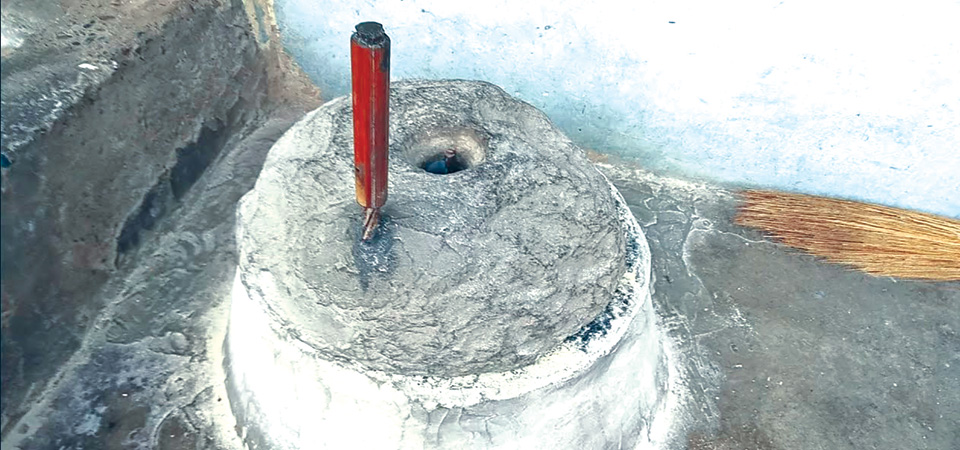Traditional grindstones losing out to mechanical grinders

By Sher Bahadur Sarki
Bajura, August 1: Once a ubiquitous kitchen device in every household, the traditional stone grinders or flour mills are dying a slow death. They are increasingly falling into a state of disuse thanks to modern appliances that make grinding grains like wheat, maize, millet and pulses much faster and easier.
Made up of two flat, round grinding stones placed one on top of the other, these traditional mills have been relegated to no more than show pieces. In the past, people used to pour grains from the top and a wood-carved handle, placed on the top, was used to turn the upper stone clockwise for grinding. Every morning, Kavita Rawal of Chededaha Rural Municipality Ward No. 1 used to wake up to the sound of the grinders. “It was like a symphony as I passed through the neigbourhood watching and listening to the people move the handle. Now people don’t use it out of necessity but simply as a hobby,” she said.
Jhali Chakra Sarki, a resident of Budhiganga Municipality-7, is worried over the fate of traditional stone mills. “These were part of local art and innovation. Apart from grinding grains, they provided a good deal of exercise to women,” he informed. But with such simple daily machines going out of use, women’s fitness in rural areas has started deteriorating, claimed Sarki. “People who still have traditional grinders at home get both nutritious food as well as a decent workout,” he concluded.
“Growing up, these simple devices were an indispensable part of our lives,” shared community leader Rajendra Rawal. However, today, his children give him a confused look whenever he tells them about stone grinders. “May be this is the reason why elderly people far outshine younger generations in terms of health and fitness,” he remarked.
Grains ground with stone grinders are believed to be healthier unlike that of machine grinders.
Given its significance, both in terms of culture and health, Nar Bahadur Rawat, chairperson of the municipality, strongly believes in preserving the Dhiki and Janto. “It seems like only yesterday when I came home from a hard day’s work and helped my wife grind some grains. Time really does move fast. Mills operating with the help of diesel and electricity have replaced our humble tools, which were passed from generation to generation since time immemorial,” reflected chairperson Rawat.
Recent News

Do not make expressions casting dout on election: EC
14 Apr, 2022
CM Bhatta says may New Year 2079 BS inspire positive thinking
14 Apr, 2022
Three new cases, 44 recoveries in 24 hours
14 Apr, 2022
689 climbers of 84 teams so far acquire permits for climbing various peaks this spring season
14 Apr, 2022
How the rising cost of living crisis is impacting Nepal
14 Apr, 2022
US military confirms an interstellar meteor collided with Earth
14 Apr, 2022
Valneva Covid vaccine approved for use in UK
14 Apr, 2022
Chair Prachanda highlights need of unity among Maoist, Communist forces
14 Apr, 2022
Ranbir Kapoor and Alia Bhatt: Bollywood toasts star couple on wedding
14 Apr, 2022
President Bhandari confers decorations (Photo Feature)
14 Apr, 2022










